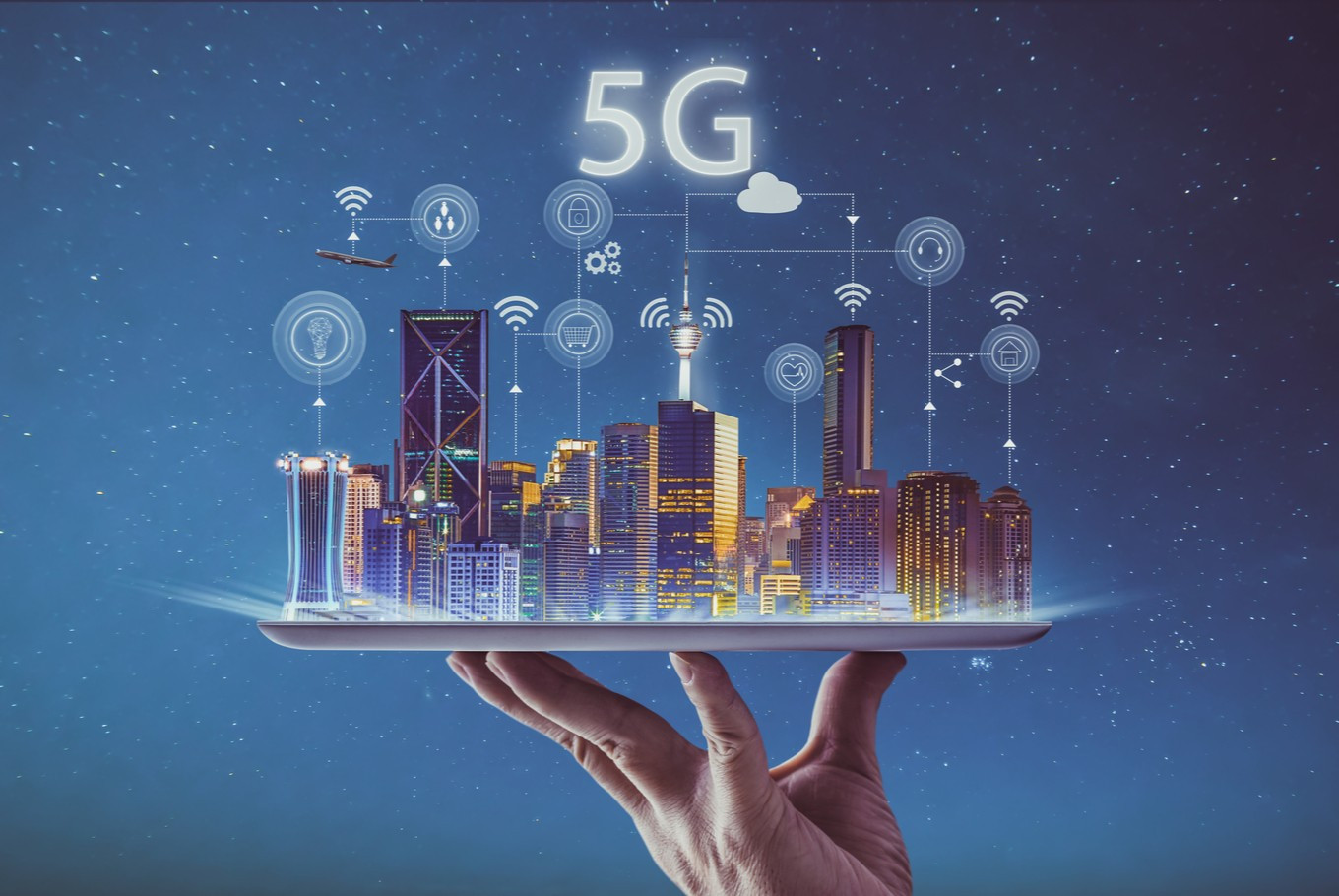Popular Reads
Top Results
Can't find what you're looking for?
View all search resultsPopular Reads
Top Results
Can't find what you're looking for?
View all search results5G network expected to be ‘game-changer’
Change text size
Gift Premium Articles
to Anyone
F
ifth-generation (5G) cellular network technology is expected to bring about significant changes in the country and bolster economic growth, particularly with digital development in various industries, a top government official and experts have forecast.
“The 5G network will be a game-changer with far-reaching impacts on connectivity as the backbone of digital transformation and a key enabler of economic growth,” Communications and Information Minister Johnny G. Plate said in a Jakpost Up Close webinar titled “5G and the future of tech in Indonesia” on Thursday.
The country is currently seeking to accelerate its 5G spectrum allocations initiative, the minister stated. Having run at least 10 trials on the use of 5G between 2017 and 2019, the government is now seeking to properly allocate spectra that can meet the demand for the 2,047 megahertz (MHz) frequency spectrum necessary for both 4G and 5G by 2024, he added.
This year, the government is running another trial to explore the possibility of simultaneously utilizing the 5G network and the fixed-satellite service (FSS).
The 5G communication technology will add Rp 2.8 quadrillion (US$188 billion) to Indonesia’s economy by 2030, making up 9.3 percent of gross domestic product (GDP), an earlier study conducted by the Bandung Institute of Technology's Industrial and Research Affiliation Institution (LAPI-ITB) showed.
The study also noted that 5G could create 4.4 million jobs, and increase productivity to Rp 9.4 million GDP per capita in the next decade. However, the benefits can only be realized once the government releases spectra for 5G from 2021 to 2023.
With the increased bandwidth and faster download speeds, the 4G apparent successor is expected to unlock new potential in the internet of things (IoT), including machine-to-machine communication.
Hari Venkataramani, a partner at management consulting company AT Kearney, said that 5G was “expected to enable Industry 4.0,” referring to the fourth industrial revolution.
In the Southeast Asia region itself, there is a value potential of $60 billion to $70 billion that can be enabled by the presence of 5G in the next five years, amid the forms of technology enabled by 5G like IoT and advanced robotics, he said.
The key sectors that could see the potential value boost range from manufacturing and logistics to mining and construction, among others.
“5G is really the backdrop of many of these sectors’ Industry 4.0 technology,” he said.
The number of 5G subscribers is estimated to reach 100 million by 2025, said Venkataramani, while in the same period, the gross value added (GVA) is expected to reach $1.8 billion.
Meanwhile, the deployment of 5G will also help ease high-speed internet access in remote areas, according to Peter Lofling, the general manager in Asia Pacific for software company Varnish.
"Another important thing that we will see 5G do is make high-speed internet access more feasible, available, without the need for fixed infra digging like fiber cables and putting switches and routers in towns. This is very important especially for rural areas, so we can reach more people and get them involved in the economy,” he said during the webinar.
Meanwhile, Dharmesh Malhotra, the managing director of global service provider for the ASEAN region at information technology firm Cisco, also stated that sectors that would see substantial changes with 5G introduction included manufacturing, retail, online gaming and health care, as well as smart cities.
“These are the industries which are likely to see major disruption, and disruption from a beneficial standpoint, as we move forward,” said Malhotra.
However, deploying the 5G network is estimated to cost Indonesia between $4 billion and $6 billion in capital expenditure between 2020 and 2025, according to Malhotra.
“It is also important to know that 5G deployment will demand large capital expenditure and will require an advanced digital ecosystem,” Johnny said.
The Communications and Information Ministry 5G task force head, Denny Setiawan, added that the country was facing challenges in releasing the low and mid bands of 700 MHz, 2.6 MHz and 3.5 MHz necessary for the 5G network. Other services such as TV are currently occupying the bands.
“The 3.5 [MHz] is one of the potential [bandwidths] because it’s a mass market, already almost a global ecosystem,” said Denny. “We will have some solution and we’ll try to achieve a win-win solution.”
The ministry plans to free up 1,880 MHz of spectrum to enable 5G, which is covered in Indonesia’s 2020-2024 National Medium Term Development Plan (RPJMN).










